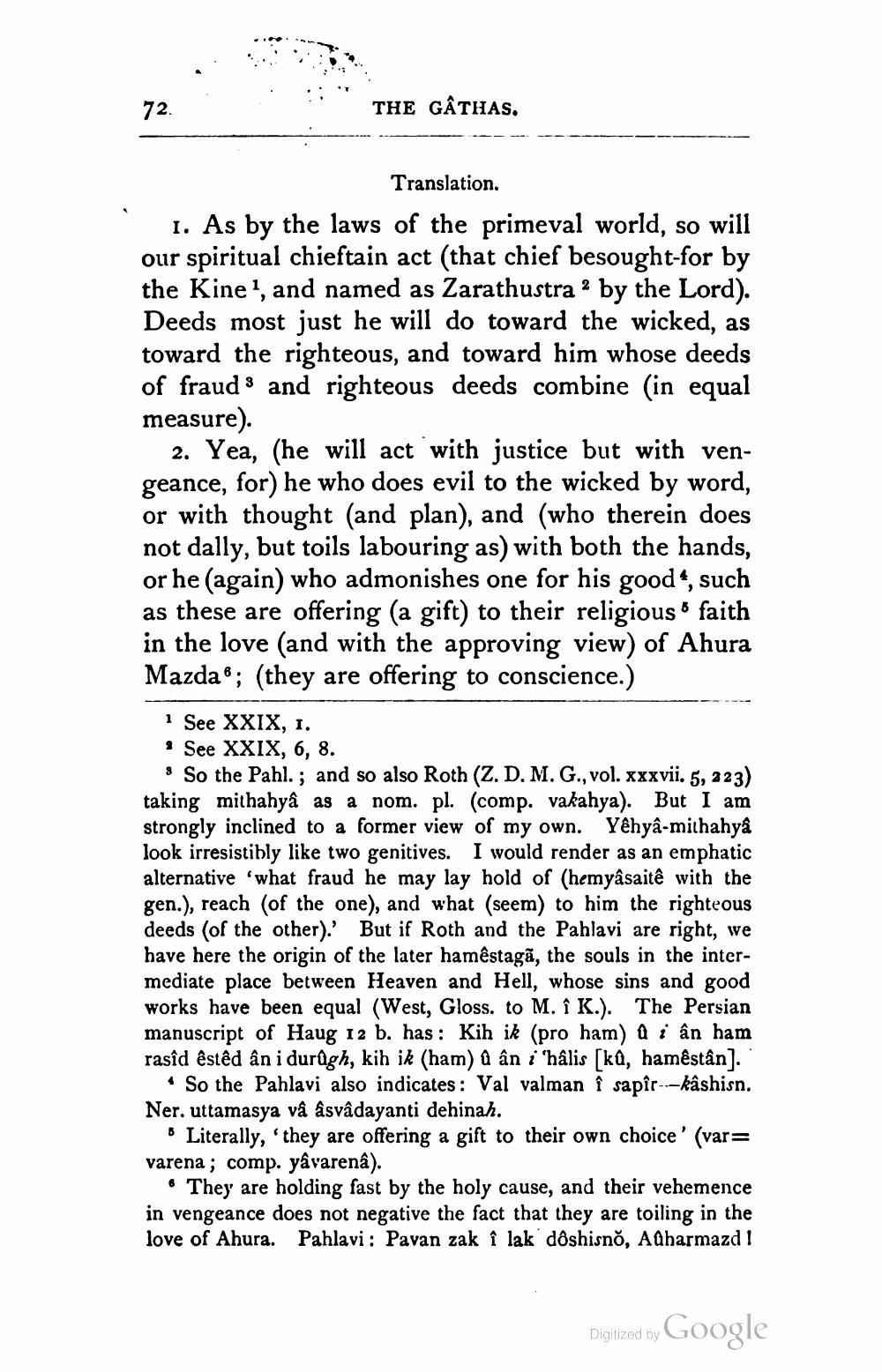________________
72.
THE GÂTHAS.
Translation. 1. As by the laws of the primeval world, so will our spiritual chieftain act (that chief besought-for by the Kine!, and named as Zarathustra ? by the Lord). Deeds most just he will do toward the wicked, as toward the righteous, and toward him whose deeds of frauds and righteous deeds combine (in equal measure).
2. Yea, (he will act with justice but with vengeance, for) he who does evil to the wicked by word, or with thought (and plan), and (who therein does not dally, but toils labouring as) with both the hands, or he (again) who admonishes one for his good", such as these are offering (a gift) to their religious faith in the love (and with the approving view) of Ahura Mazda 8; (they are offering to conscience.)
i See XXIX, 1. • See XXIX, 6, 8.
8 So the Pahl.; and so also Roth (Z. D.M.G., vol. xxxvii. 5, 223) taking mithahyâ as a nom. pl. (comp. vakahya). But I am strongly inclined to a former view of my own. Yêhyâ-mithahya look irresistibly like two genitives. I would render as an emphatic alternative "what fraud he may lay hold of (hemyâsaitê with the gen.), reach (of the one), and what (seem) to him the righteous deeds (of the other).' But if Roth and the Pahlavi are right, we have here the origin of the later hamêstagã, the souls in the intermediate place between Heaven and Hell, whose sins and good works have been equal (West, Gloss. to M. î K.). The Persian manuscript of Haug 12 b. has: Kih ik (pro ham) a i ân ham rasîd êstêd ân i durūgh, kih ik (ham) û ân i 'hâlis [ků, hamêstân).
• So the Pahlavi also indicates : Val valman î sapîr---kâshisn. Ner. uttamasya vâ ásvâdayanti dehinah.
Literally, they are offering a gift to their own choice' (var= varena; comp. yâvarenâ).
• They are holding fast by the holy cause, and their vehemence in vengeance does not negative the fact that they are toiling in the love of Ahura. Pahlavi: Pavan zak i lak dôshisno, Adharmazd I
Digitized by
Digitized by Google




